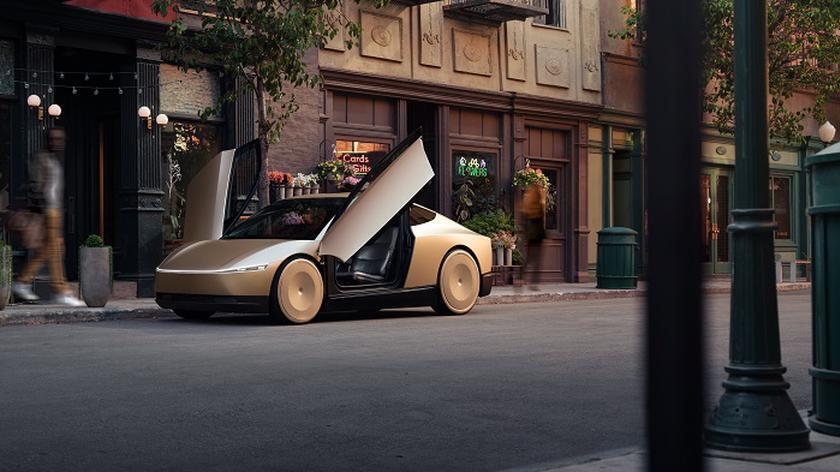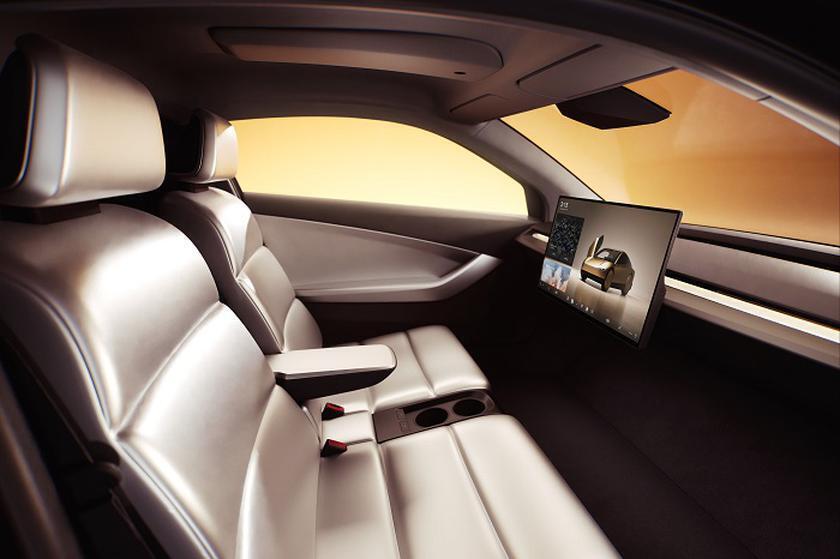Tesla has unveiled Cybercab, a fully autonomous robotaxi for two passengers

Tesla has showcased a new autonomous vehicle known as the Cybercab, marking another step forward for the company in the realm of robotic taxis. The unveiling took place during the "We, Robot" event where Tesla CEO Elon Musk introduced the Cybercab as a striking, two-passenger, fully self-driving concept vehicle. Noteworthy is its design reminiscent of the Cybertruck, featuring futuristic, "gull wing" doors and an interior devoid of a steering wheel or pedals. Passengers interact via a touchscreen that hosts trip data and entertainment applications.
Electrically powered, the Cybercab eschews traditional charging ports in favor of inductive charging, allowing for wireless recharging. Musk emphasized the vehicle's operational cost-efficiency, predicting a mere $0.20 per mile, a significant reduction from the standard $1 per mile associated with urban public transport. Additionally, Musk highlighted that these autonomous vehicles are expected to be considerably safer—10 to 20 times more so—than traditional cars driven by people. Commercial deployment will initially target Texas and California in 2025, pending regulatory approval, with mass production slated for as early as 2026, potentially extending into 2027.


The Cybercab's introduction follows rounds of skepticism towards Tesla's autonomous vehicle ambitions, given previous setbacks and delays. Musk's assertion at the unveiling underscored his optimism for the role of autonomous vehicles in enhancing time utilization for activities such as reading or entertainment. Outside the Cybercab, Tesla continues evolving its autonomous segment amidst heightened competition from Waymo and Cruise that leads in deploying self-driving cars. However, Tesla's ventures, including the criticized Autopilot and Full Self-Driving (FSD) systems, face intense scrutiny from regulators due to safety concerns and controversy surrounding their classification as non-fully autonomous, yet driver-assisting systems.
Aimed at reshaping Tesla's business trajectory from being focused just on EVs to incorporating advanced robotics and AI, the initiative reflects in Musk's dual endeavors—introducing the groundbreaking robotaxi concept while refining the Optimus robot product. Despite challenges poised by changes in regulations and unexpected accidents involving automated driving technology, Musk aims for the Cybercab to disrupt and redefine transportation methodologies further. Setting a price cap under $30,000 underscores Tesla's strategy to make innovative travel modalities more accessible, boosting anticipation within enthusiast and technology circles alike.
Earlier, SSP wrote that a new recorder app for recording audio will appear on Chromebooks.



















